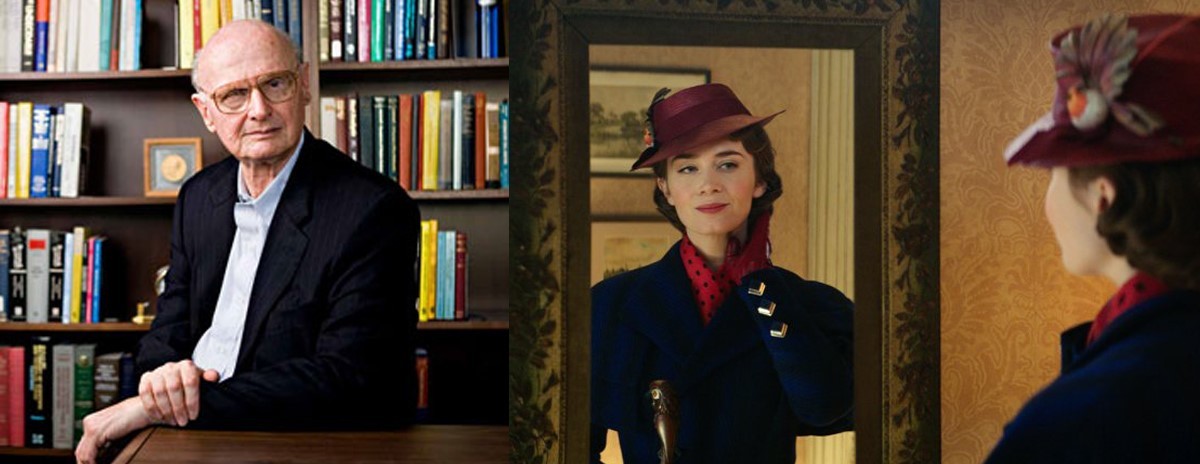
I have to admit that I was a little nervous when the moment came for me to interview the godfather of the Modern Portfolio Theory, Professor Dr. Harry Markowitz. He had been so kind to agree that I would interview him for the book that my colleague Chris Zadeh and I are writing about the psychology behind our irrational behavior when it comes to money matters. A full hour, that is what we had to make sure we could capture some of his insights and convert it into a valuable contribution to our book.
It was not just me in the interview, but also several colleagues. Carla Martinez (who set up the interview) and Sicco Brakema (who introduced us to Dr. Markowitz), shared the same hint of nervousness for this interview. It is not every day that you get to talk to someone with some pretty impressive credentials:
- Economist
- Recipient of the John van Neumann Theory Prize
- Nobel Memorial Prize in Economic Sciences
- Professor of Finance at the Rady School of Management
- Pioneer in Modern Portfolio Theory
- And the list goes on…
Dr. Markowitz must have noticed this as he started by casually talking about a previous trip to the Netherlands and before we knew it several perfectly pronounced Dutch words such as “rijsttafel” came our way which made us a bit more at ease.
Change your perspective
In the movie Mary Poppins Returns which stars Emily Blunt as the title character (which she nails), taking care as a nanny of the new generation Banks children, Meryl Streep plays Mary’s eccentric cousin Topsy “a woman who can fix anything”. When Mary visits her cousin with the Banks children, she realizes that it is the second Wednesday of the month. A day dreaded by Topsy as her world literally turns upside down and she is not able to fix anything.
The legendary Mary Poppins stresses that if you change your perspective everything looks better.
Off course Mary is correct and as the Banks children, Mary and Topsy stand on their head, the world looks much better from that angle. Something that is upside down, is fixed. Turning the second Wednesday of the month into the favourite day for cousin Topsy.
Its all about changing your perspective.
Struggling to change my perspective
During the first 45 minutes of the interview I struggled to ensure that I could convert the experience and knowledge of the brilliant mind of Dr. Markowitz into advice and stories that non-Nobel prize winners could relate to. Giving it my all to keep up with his 91 years of (life) experience and him debating numerous topics he is passionate about:
Critical line algorithm, portfolio theory, sparse matrix methods, simulation language programming (SIMSCRIPT incl. Buddy memory allocation method), capital asset pricing model, etc.
As time was ticking, I dreaded more and more that I would fail to take this unique opportunity and convert it into something that I could use for the book which has a more practical and personal approach combined with a touch of research. My excitement about this interview was slowly turning into fear that I would screw it up by not being able to capture a practical lesson learned or piece of advice from Dr. Markowitz who brilliantly debates the most complicated economic theories and models.
So I was frantically thinking about how I could change my approach to one of the smartest economists in the world so that he would share a piece of advice that would relate to the general public and was in line with the practical direction of our book. Most likely advice that did not originate from one of his theories or research. But I realized during the interview that this is not something he might generally talk about a lot as everybody probably also assumes he talks about his research and really wants to hear the insights from the godfather of Modern Portfolio Theory in real life (as did I).
Then it hit me: I have to change my own perspective. I should not be discussing his achievements as an economist.
Marry Poppins to the rescue.
I was talking to a highly intelligent man and I was trying to get something highly intelligent from this interview. But I realized that I had to adjust my perspective and ask a far more simpler question that did not relate to what he would typically talk about:
“What advice would you give a 12-year old when he or she first received pocket money or money for chores like washing a car of mowing a lawn?
Super simple.
That was it, and I felt the interview turning…Like aunt Topsy Dr. Markowitz turned from sharing brilliant yet very complicated economic explanations, to sharing a deeply personal story with an exceptional piece of advice. A story everyone could relate to and could potentially be inspired by as it did me at that moment. It triggered me, challenged me and make me decide to change certain assumptions I had made for a part of our book, hopefully making it better (I’ll let you be the judge of that when it is published). By changing my perspective, it turned the interview for the better.
Mary Poppins did it again: she came to the rescue and put a smile on my face.
What can the Financial Services Industry and FinTech community learn from Marry Poppins
After this interview, I realised that I should project this experience more on my daily business, the industry I work in and the people around me. I feel that we have to change our perspective more often.
Our industry is rightfully very knowledge based and driven by specialists. Whether you work at a bank, an asset manager, insurance company or at an IT company like I do, we immerse ourselves in jargon, theories, models, technologies and all the great things that come with our industry and experience. All to make things better! #LoveFinTech
But the question is: how do we keep making it better?
Translate brilliance into simplicity
The answer to me is simple: keep changing our perspectives. You and me, not our professional sides but us as consumers and customers. We are all customers. And a customer is only helped if he grasps what we’re talking about and experiences the benefits (make ‘m happy).
My lesson from this unique experience was that when we translate brilliance into simplicity, so all the knowledge, inventions, strategies, theories, jargon we have and change our perspective, we can achieve that what we were looking for. For me it resulted in a valuable piece of information that we can share and hopefully make a difference. So drop the jargon and think benefits if you want to relate to your customer. Not once, but continuously.
Dutch Delights
At the end of the interview Dr. Markowitz and I exchanged our love for Dutch cheeses from the region Gouda and some other typical Dutch treats.
He concluded the interview by sharing a personal experience from many years back when he was in the Netherlands with Dutchman Erik van Dijk with whom he wrote a paper about “Single-period mean-variance analysis in a changing world”. The last name of his co-author translates to dike (which subsequently triggered me to think of Dick van Dyke who stars in both Marry Poppins movies) and the both of them where standing on a dike eating “maatjesharing” (Dutch raw herring), almost nothing is more Dutch than this image.

We concluded the interview with roaring laughter from Dr. Markowitz. Priceless.
Thank you Dr. Markowitz for giving us this opportunity and thank you Mary Poppins for helping me change my perspective.